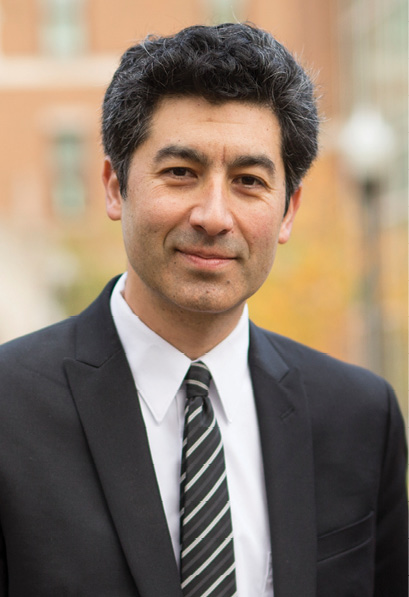Keivan Stassun, Stevenson Professor of Physics and Astronomy and director of the Frist Center for Autism and Innovation, was appointed to the National Science Board by President Joe Biden on Jan. 13.

The National Science Board created the National Science Foundation, which supports fundamental research and education in all the non-medical fields of science and engineering. The board directs the goals and workings of the NSF, including the duty to “recommend and encourage the pursuit of national policies for the promotion of research and education in science and engineering,” according to a White House release.
Specifically, Stassun will be on the board that determines NSF policies and strategic budget directions, approves new major programs and awards, and submits the annual budget to the Office of Management and Budget in the White House. The board also will advise the president and Congress on policy matters related to science and engineering and education in science and engineering.
“Professor Stassun’s appointment reflects his demonstrated excellence in astrophysics and his impactful leadership in the scientific community,” Chancellor Daniel Diermeier said. “What’s more, it reflects Vanderbilt’s stature as a leading center of research and innovation, where our faculty are not only making important discoveries in their fields, but also helping to determine the direction of exploration of all kinds. We are thrilled to hear of Professor Stassun’s appointment, and I congratulate him on behalf of the entire university community.”
“I am proud to see a Vanderbilt researcher playing an important role in charting the nation’s course for science and engineering,” Provost C. Cybele Raver said. “Congratulations to him on this great honor.”
“There is no question that this high-level appointment is not only a recognition of the fact of Vanderbilt’s investment in astrophysics, but importantly of the way in which Vanderbilt has made its investment, resulting in an astrophysics program that is arguably unique in the nation by virtue of its dual commitment to excellence in the technical and human aspects of the science,” Stassun said. “Having recently completed service on the National Academy of Science’s Decadal Steering Committee for Astronomy & Astrophysics, which made a number of major recommendations for the research agenda and for the health of the field, I expect it will be a very rewarding experience to now help shepherd the National Science Foundation in executing the Decadal vision.”
“Importantly, that Decadal vision includes multiple facets: from the next generation of ‘big glass’ observatories to the technological developments that will enable everything from the study of distant worlds and colliding black holes, to the bread-and-butter basic research grants that are the lifeblood of the nation’s researchers, to the workforce development that will be needed to ensure future leadership of the field that is inclusive of the full diversity of the nation’s human talent. Each of these facets depends crucially on NSF’s investment and leadership.”
Stassun is a co-investigator for NASA’s Transiting Exoplanet Survey Satellite mission, and he chairs the executive committee of the Sloan Digital Sky Survey. An elected fellow of the American Physical Society, the American Astronomical Society and the American Association for the Advancement of Science, his research on stars and exoplanets has appeared in more than 500 peer-reviewed journal articles.
“This appointment also represents a major milestone for Vanderbilt University and its investment in the astrophysics program and the physics and astronomy department. When I arrived at Vanderbilt 20 years ago, there was essentially only one astronomer, David Weintraub, whose vision helped lead to what is now a nationally recognized program that punches way above its weight class,” Stassun said.
The NSB is made up of 25 members appointed by the president; the NSF director is an ex officio member. Members serve six-year terms. Because the National Science Board appointment involves oversight of the NSF specifically, Stassun will continue his active leadership and research programs on the upcoming NASA missions UVEX and AXIS.
About Stassun:
- Founding director of the Frist Center for Autism & Innovation in Vanderbilt’s School of Engineering. The Frist Center is focused on advancing science and engineering through the engagement and workforce development of individuals with autism and other forms of neurodiversity
- Served on NSF’s Committee for Equal Opportunity in Science and Engineering
- Chaired the American Astronomical Society’s Committee on Minorities
- Recipient of the American Physical Society’s Nicholson Medal for Human Outreach
- Named Mentor of the Year by the American Association for the Advancement of Science
- Honored with a Presidential Award for Excellence in Science Math and Engineering Mentoring
- Recipient of an NSF CAREER award, a Cottrell Scholar award from the Research Corporation for Science Advancement and a Ford Foundation Diversity Fellowship from the National Academies
